And an essay I wrote about the joys of large families was published by Religion News Service last week. It’s here.
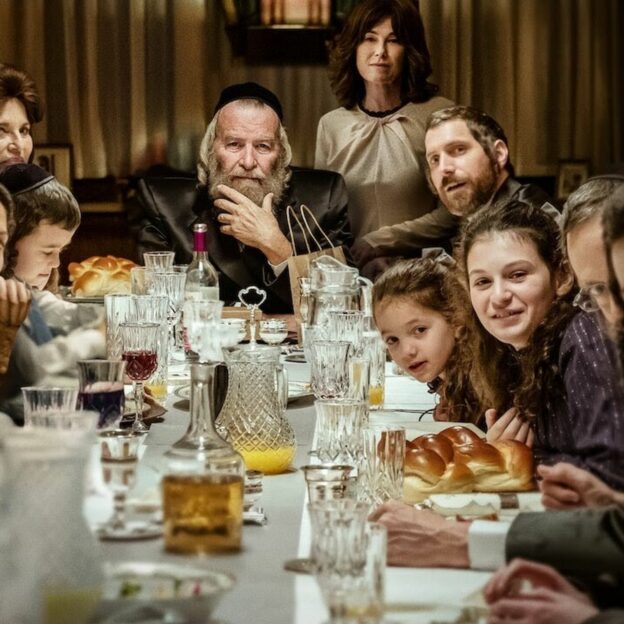

And an essay I wrote about the joys of large families was published by Religion News Service last week. It’s here.

When describing the camel and pig, animals that lack either of the two signs required for their species to be considered consumable by Jews, the Torah’s wording is odd.
Kosher species require cud-chewing and split hooves, yet the camel, the text states, is forbidden “because it chews its cud, but does not have a [completely] split hoof”; and the pig, “because it has a cloven hoof that is completely split, but will not regurgitate its cud.” The “becauses” are seemingly misplaced, since the reason for the species’ forbiddance is for the lack of one kosher sign, not the presence of one.
Similar wording is used regarding the two other “one sign only” species mentioned, the hyrax and the hare.
The Kli Yakar perceives something poignant in the placement of the kosher signs after the “becauses.” He writes that “their pure sign adds extra impurity to their impurity, as we find that Chazal compared Esov to a pig that sticks out its hoofs when it lies down to make it appear as if it is kosher, but its inside is full of deceit. This represents anyone whose inside is not like his outside, in the manner of the hypocrites … Therefore, the pig’s split hoof is a sign of impurity because the split hoof can deceive people and make it appear as if it is kosher.”
The Chashmonai king Yannai, before he died, told his wife “Don’t be afraid of the Perushim [Torah-faithful Jews] or of those who are not Perushim, only of the hypocrites who present themselves as Perushim, for their actions are those of Zimri while they ask for reward like Pinchas received” (Sotah 22b).
Presenting oneself as a better version than that of one’s reality, Rav Yaakov Weinberg, zt”l, once told me, isn’t wrong – if one aspires to that better version. As the Chinuch put it, “what is on the outside can awaken the inside.”
But pretension for the sake of pretension is being, well, piggish.
© 2024 Rabbi Avi Shafran
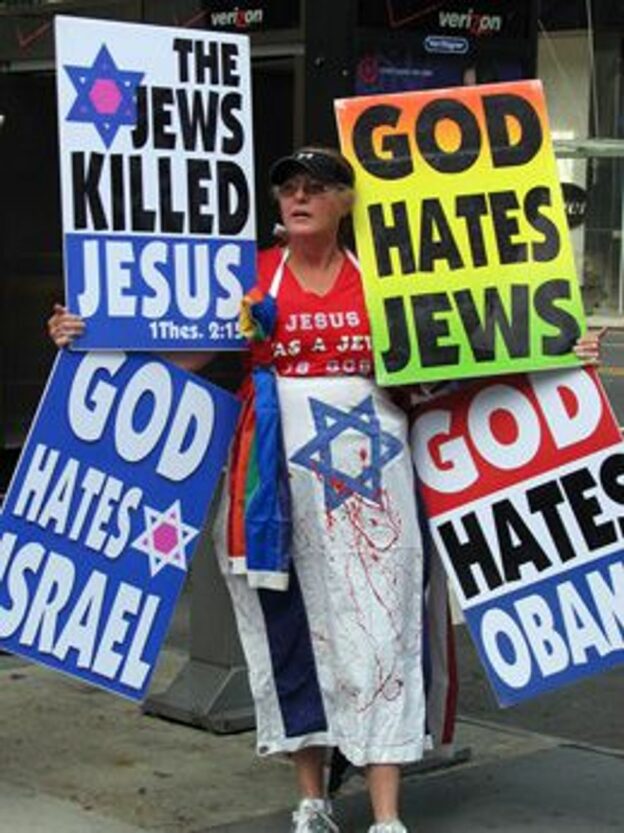
Long ago, I wrote an essay “The Beauty of Anti-Semitism.”
If you’re intrigued by what I meant by that provocative phrase (and it’s something most timely today), please click here.
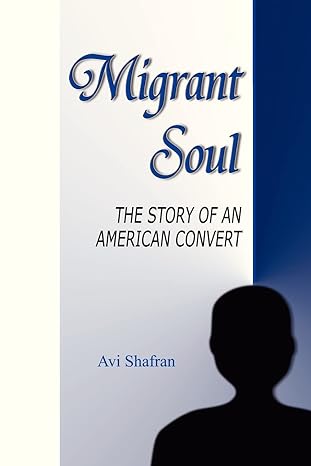
One of our granddaughters told me she is reading my book “Migrant Soul”, which was published back in 1992. It spurred me to read it myself, for the first time in more than two decades. I liked it! It’s out of its original publisher’s print but, if you’re interested, it can be ordered print on demand or in a Kindle version here.

Many years ago, a wise rebbe of mine, addressing instances of financial finagling by some members of the tribe, explained that the forefathers of us Jews whom we revere are Avraham, Yitzchak and Yaakov, and we are to strive to emulate their rectitude and integrity. But, he continued, our bloodline also includes the cheater Lavan. And sometimes, regrettably, his genes, so to speak, can express themselves in some Jews’ inclinations, and even behavior.
At the end of the parsha, Yosef, still “undercover” as the Egyptian viceroy, plants a royal goblet in Binyamin’s knapsack. When the chalice, which Yosef indicates was used for telling the future, is “found” there, he says to his brothers, “Don’t you know that a person like me practices divination?”
Divination, or kishuf, is forbidden by the Torah. Yosef received his ability to interpret dreams directly from Heaven, not through any magical means. And that is clearly why he avoids lying outright, not claiming that he himself uses the goblet for divination purposes but, rather, that it is so used by “a person like me” – referring to Par’oh, not himself.
The halachos of what constitutes kishuf are complex. There are occasions when an omen may be taken seriously but, generally speaking, acting on the “revelation” of an omen, or relying on seemingly magical means to make one’s plans, constitutes a forbidden act.
There are, unfortunately, practices that have found footholds in some otherwise observant Jewish circles that seem clearly to be straddling, if not crossing, the line between legitimate “omen recognizing” and outright, forbidden occultism. I won’t venture into citing particular practices. As the same wise rebbe quoted above would say about controversial things, “Go ask your local Orthodox rabbi.” But when faced with the option of utilizing a seemingly questionable segulah, one needs to weigh the possibility that doing so may be an issur d’Oraysa, a Torah prohibition.
Back in parshas Vayeitzei, we find Lavan telling Yaakov, that “I have learned by divination that Hashem has blessed me on your account” (Beraishis 30:27).
Once again, Lavan is in our ancestry. But we have free will, and are charged to do our best to squelch whatever inclinations we may have that are born of that ancestor’s influence.
© 2023 Rabbi Avi Shafran

Years ago, I learned the meaning of a Talmudic statement about stealing from a poor person. You can read about it here.
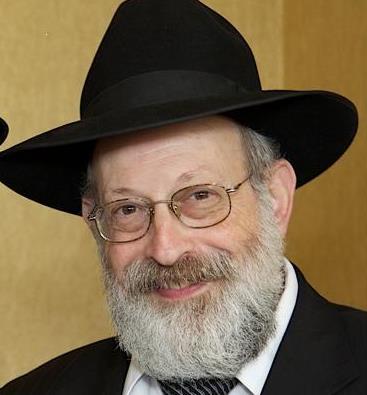
I have the great privilege of serving as public affairs director of Agudath Israel of America for nearly 30 years. I joined the staff at the invitation of Rabbi Moshe Sherer, a”h, and am honored to have worked under him, as I am under the Agudah’s current executive vice president, Rabbi Zwiebel.
And then there are my colleagues. It is gratifying to work alongside some of the most dedicated and effective protectors of religious rights, providers of social services, promoters of Torah study and observance, and standard bearers of Judaism.
Above all, it is humbling to work for a Jewish organization that takes its direction from a body like the Moetzes Gedolei HaTorah. Agudath Israel is truly a unique movement.
And it is poised to launch a drive to ensure that it can continue its great work into the future without hindrance .
If you know enough about the Agudah to cherish it (and if you don’t, please spend some time at https://agudah.org/ ), or if you just want to show appreciation for the articles that I produce (whether for the Agudah or for various media, which the organization gives me rein to do), please visit
https://charidy.com/agudahnational/AShafran
and offer whatever you can to help further the cause. Thank you!
AS
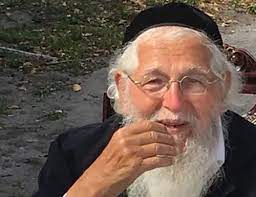
The sorrow I felt at the news that Rav Aharon Schechter, zt”l, had been niftar from this world eventually gave way to the comforting image of his radiant smile and the memory of his personal warmth. And to a particular personal memory of a long-ago, unexpected phone call.
The Yeshivas Rabbeinu Chaim Berlin Rosh Yeshiva’s smile wasn’t born of any calculated forcing of will. It was simply his “default” expression, the physical manifestation of his simchas hachaim and ahavas Yisrael. It receded only when he was deep in thought, saying a shiur, pondering a she’eilah or formulating a response to a question, then giving way to a look of concentration. As soon as the contemplation was complete, the smile quickly, naturally, reasserted itself, coming again to the fore.
Rav Schechter’s brilliance and scholarship were recognized by Rav Yitzchak Hutner, zt”l, who tapped him to take his place in the yeshiva when Rav Hutner moved to Eretz Yisrael to found Yeshivas Pachad Yitzchak in Yerushalayim. And they are evident in “Avodas Aharon,” the sefer Rav Schechter authored back in the 1950s. And his eloquence, whether speaking in Yiddish or English, was striking.
Until illness limited him, Rav Schechter was constantly in the beis medrash, and even learned “bichavrusa” with talmidim. Under his direction and love, the yeshiva became a renowned makom Torah.
But it was his smile, his kindness, his ahavas Yisrael, his concern for everyone with whom he interacted, that first come to my mind when I think of him.
The sensitivity that characterized Rav Schechter was evident in much of what was recounted at his levayah. Although in her later years, his rebbetzin had become progressively unaware of her surroundings, her husband refused to recite kiddush on Shabbos until she was seated at the table, such was his respect for his eishes chayil, diminished in awareness or not. Once, leaving home for the chasunah of one of the rebbetzin’s relatives, he told her he was going to a chasunah. Why, he was asked afterward, didn’t he say whose chasunah he was attending. “I didn’t want her to feel bad that she isn’t able to go,” was his response.
I cannot claim the honor of having been a talmid of Rav Schechter’s. I first met him, briefly, in the early 1980s, when I was a rebbe in a mesivta in Providence, Rhode Island and, by then having become a member of the Moetzes Gedolei HaTorah, he visited the community. (That alone said much about him.)
He observed my shiur and even offered an observation about a perplexing Rashi to me afterward.
I wouldn’t hear his voice again for two or three years, on that phone call.
Those of a certain age might recall a controversy I inadvertently stirred up with an article I wrote in the much-missed Jewish Observer in 1986. On the heels of an earlier JO piece I had written about the radical Reform proponent Abraham Geiger, the magazine’s editor, Rabbi Nissan Wolpin, a”h, asked me if I would undertake one about the Jewish philosopher Moses Mendelssohn.
I said I would happily do so, but, having done some reading about Mendelssohn, knew that, despite the sad fate of his children and disciples, he was no reformer. Rabbi Wolpin insisted that all he was asking for was an accurate portrayal of the man and whatever thoughts I might have to offer about him.
The resultant article, “The Enigma of Moses Mendelssohn,” described him accurately, as having lived an observant Jewish life, even as, professionally, he moved in decidedly unJewish circles.
Although the JO’s respected editorial board, including Rav Joseph Elias, a”h, quite the expert on German Jewish history, had approved my article, it enraged some readers, who had coddled an image of the article’s subject as the “father of Reform.” They felt that my suggestion that Mendelssohn’s inability to keep his students or progeny within the Jewish fold lay in something subtle, a lack of true respect for gedolim of his era, was a whitewashing.
The brouhaha grew so frenzied that the question of how the Jewish Observer should respond was discussed by the members of the Moetzes Gedolei HaTorah. I was told that their ultimate decision – to have the JO express regret for having published the piece – was not favored by all the Moetzes’ members.
Far from the storm, in Providence, any bolts of lightning missed me, and I didn’t really feel its hailstones. But I was told that they were large and many. When I called the Agudah’s offices about something unrelated, the receptionist asked, under her breath, “How are you holding up?”
That’s when I realized that the storm had been upgraded to hurricane status. I was, understandably, not happy. I had, I thought, just reported facts and offered a theory. Some, though, felt I had attempted to rehabilitate a fiend.
When the JO’s apology for running my piece was published, Rabbi Wolpin called me and attempted to take the blame for the hubbub. But he had done nothing wrong. Neither he nor the members of the editorial board (nor I) had any reason to foresee the anger that had ensued.
I was understandably disheartened, though, by the disowning of what I had worked on so long.
It was a Motzoei Shabbos when the phone rang. Caller ID wasn’t yet a thing and so I had no idea who was calling. I picked up and said “Gut voch.”
The voice on the other end said, “This is Schechter.”
“Moishy!” I exclaimed, delighted to hear from my old high school classmate in Baltimore’s Yeshivas Chofetz Chaim, or “T.A.”
“No. Aharon.”
It took me a few seconds to realize whom I was speaking with. But the realization eventually dawned.
“Rosh Yeshiva!” I corrected myself. “I’m so sorry. I thought it was someone else.”
“That’s okay,” he responded. And then he got to the crux of the call. “I just wanted to wish you a gut, gebenched voch. That’s all.”
To say that the call was a balm or chizuk at a difficult time would be an understatement. I don’t recall exactly what I stammered in response to the Rosh Yeshiva’s wish, but I imagine I expressed my hakaras hatov for the call. I certainly felt it.
The kerfuffle over the Mendelssohn piece, like all storms, subsided with time. And, ironically, Rabbi Moshe Sherer, a”h, later offered me a position at the Agudah (which I initially turned down – another story there – but eventually accepted).
I’ve been with the Agudah now for some 30 years. And one of the great perks of working for the organization has been the ability to greet and speak with members of the Moetzes Gedolei HaTorah when they have come to the office to meet.
Approximately two years ago, Rav Schechter attended one such meeting; it would turn out to be his last. He was already physically compromised, but his smile was unfaded, bright as ever. When I went over to greet him, he warmly shook my hand.
And then he asked me if he could hold on to my arm as he made his way down the hall. I was sad that he needed support but couldn’t have been more honored. And that special memory of being able to be of some small assistance to the Rosh Yeshivah has joined the company of another special memory, of an unexpected phone call 35 years earlier.
© 2023 Ami Magazine

Back in 1988, I buried a Reform rabbi. Literally.
To read about who he was and why I undertook that holy task, click here.
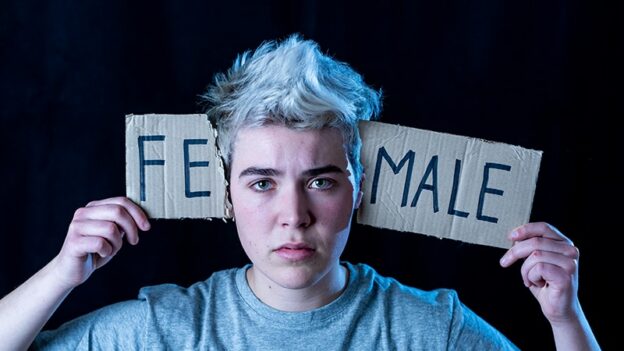
An essay of mine on transgenderism and Torah appears at Times of Israel, here.